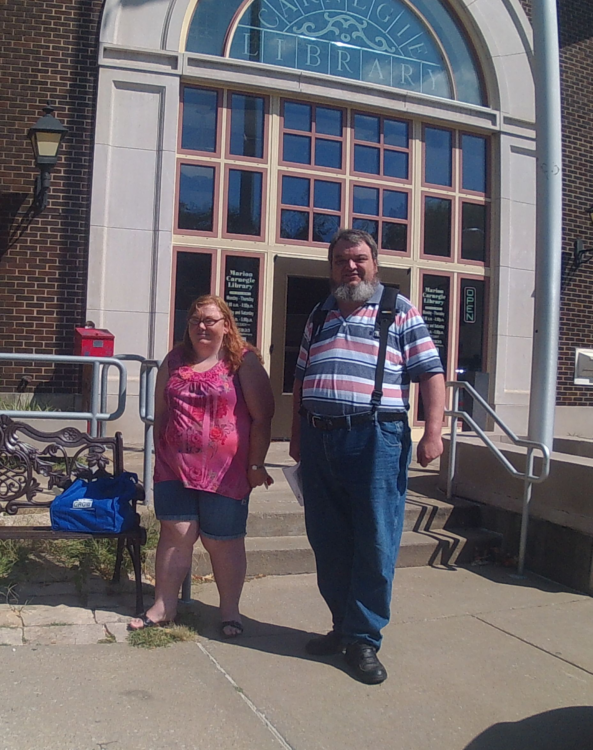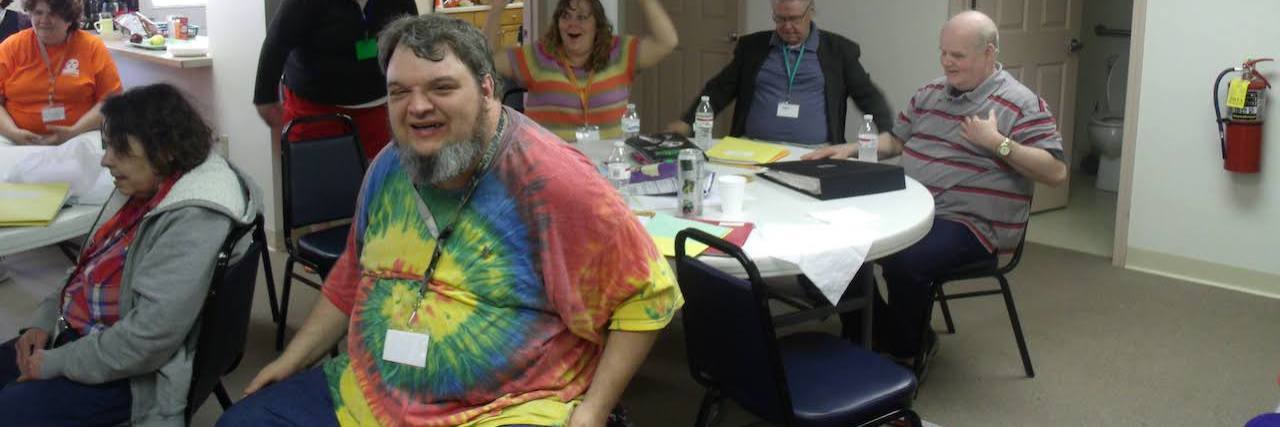I have been in peer support since Feb. 2002. I was a leader in a 12-step group for 15 years. In those 15 years, I did some of the most rewarding things of my life. I was able to give people like me the things that I always wanted the most in my life: acceptance and friendship. I was able to give those to people because others ga-*ve them to me and taught me how to share them. They are still the two most important things to me. Before I get into everything that is important to me as a leader, I need to tell you how I became a leader.
• What is Bipolar disorder?
After I tore up my lungs, I was on oxygen and steroids, gained weight and my depression became worse. I was still working as a programmer and system administrator. It was a sit down job so I could do it physically. I couldn’t emotionally. I was still being bullied at work about my mental health. I became angry and hateful. It led to a major breakdown and a suicide attempt.
After being in the hospital again for the first time in 20 years, I was back in group therapy too. A lady said my problems didn’t matter because I didn’t have a family or kids to support.
The counselor said, “She’s right, Matt.”
Then the counselor continued on more about it.
Less than an hour later at lunch, I just snuck off and left. If my problems don’t matter why was I there, let alone why was I spending all that money? I didn’t go back.
So, I just went back to work. That was a wrong choice, too. It wasn’t long until I was back in the hospital.
I went to an orientation for a 12-step group while I was there. It was a recovery group for people getting out of the hospital. It was like AA but about mental health. It was run completely by its members. Not by doctors or counselors. That not just interested me but excited me. No counselors or social workers to say uninformed things. Only people who had been there.
I went for the first time after I got out. I was still angry and hateful with people. I was very sensitive about what people said in the group. These people were being really good to me. About three quarters the way through that meeting, I figured out I had become mean. Despite that, the people in this 12-step program accepted me and asked me to come back. All seven people exchanged phone numbers with me. All seven friends called to check up on me every week after for a long time. A couple of them still do to this day.
After I attended a few weeks, the field worker, the paid employee for my area, asked me to come around with her for a week or two. We went to groups throughout my area. Most days another member or two came with us. There were public groups like my group at the library in town. The agency groups were mostly people from the agency’s group homes. The orientation groups were at the four hospitals in my area. There were six public groups, five county agencies and one hospital group every week.
I went to all the public and agency groups. They were one to two hours depending on how many came. Another new member or me would tell why we came. A regular member would tell how the group helped them. Everybody talked about their week. A basic check-in and problem solving. We learned something from the book. Group announcements and business before a group hug to finish.
That week I came home with more telephone numbers. There were 15 friends that called me that week to see how I was. They were people who could have been doing anything, but they were listening to me. There were people that were well-off enough that they could have been out to dinner, seeing a movie or doing their favorite hobby. There were people in group homes that spent their two hours of free time for the day listening to how bad I had it.
That Friday, there was a hospital orientation. It was freaky going to that orientation even though we were only to be there 30 to 45 minutes. Not only was it rougher because the hospital freaked me out. It was rougher that I had to tell them how the group had helped me. So I told them about all my new friends who called to check in on me.
One person asked, “Are they really your friends or are they just doing this for the group?”
It took me a few minutes to think about it.

I said, “I worked so many hours the last five years, the only people I talked to were the mean people at the TV network. These people in the group have been such good friends to me. I don’t care if they’re just my friends for the group. If I can have friends and get better together, I am going to do it.”
We talked about that all the way home. I started going with her every week and telling everybody about all my new friends. It wasn’t that long till we had people join because they wanted me to be their friend and listen to them. So I did.
Then there were socials. Every month the local groups got together and had a potluck. Some games and a couple hours of social time. I was finding that these people really did want to know how I was doing and hoped I was doing better. Strangely, I was feeling that way about them.
In the first two years, I learned to stop hating myself and everybody else. I learned how to make and keep friends. I learned to trust people again. I learned to control my anger. I learned to accept hugs.
Over the next five years I learned how to do all the group responsibilities that leaders do. Still though 90% of what I did was make sure everybody got included and I listened to anybody that needed a friend. I learned it wasn’t important if I had advice or was able to help them. It was most important to listen.
The next 10 years, I learned a lot about leadership as well as how to make other leaders. Being a leader in peer support isn’t just about telling people how you did it. It’s about helping other people tell how they did it. Helping them to help more people; so they can help people to help more people.
It has always been important to me to support people who have been wronged by the mental health system. When that counselor told me my problems didn’t matter, I didn’t know she was wrong. I didn’t know she was going to get suspended for a couple weeks. Until I had the support of the 12-step group, I thought she was right.
There are so many people who have been done wrong by, as I will say, less than professional mental health workers at best. That means so much to me to support those people.
There’s so many people like me before I joined that 12-step group. Nobody would listen to them. It’s all in our head. We’re just crazy. We can’t control our emotions. If we would stop being so dramatic. If we would be more thankful for what we have because other people are worse. If we would just get over it. Those are the people I wish to support.
The most fun thing I enjoy is welcoming people. I just love doing that. I think inclusion is the greatest act of kindness that I can do. Just a simple welcome or — would you like to come along?
This is what it means to me to be a peer support leader. I hope I can make more leaders. I can only work and hope to become as great a leader as some of the ones who taught me.
If you have chosen to work at and become a peer support leader as well, thank you. I wish you the best.
Getty image via AnnaStills

